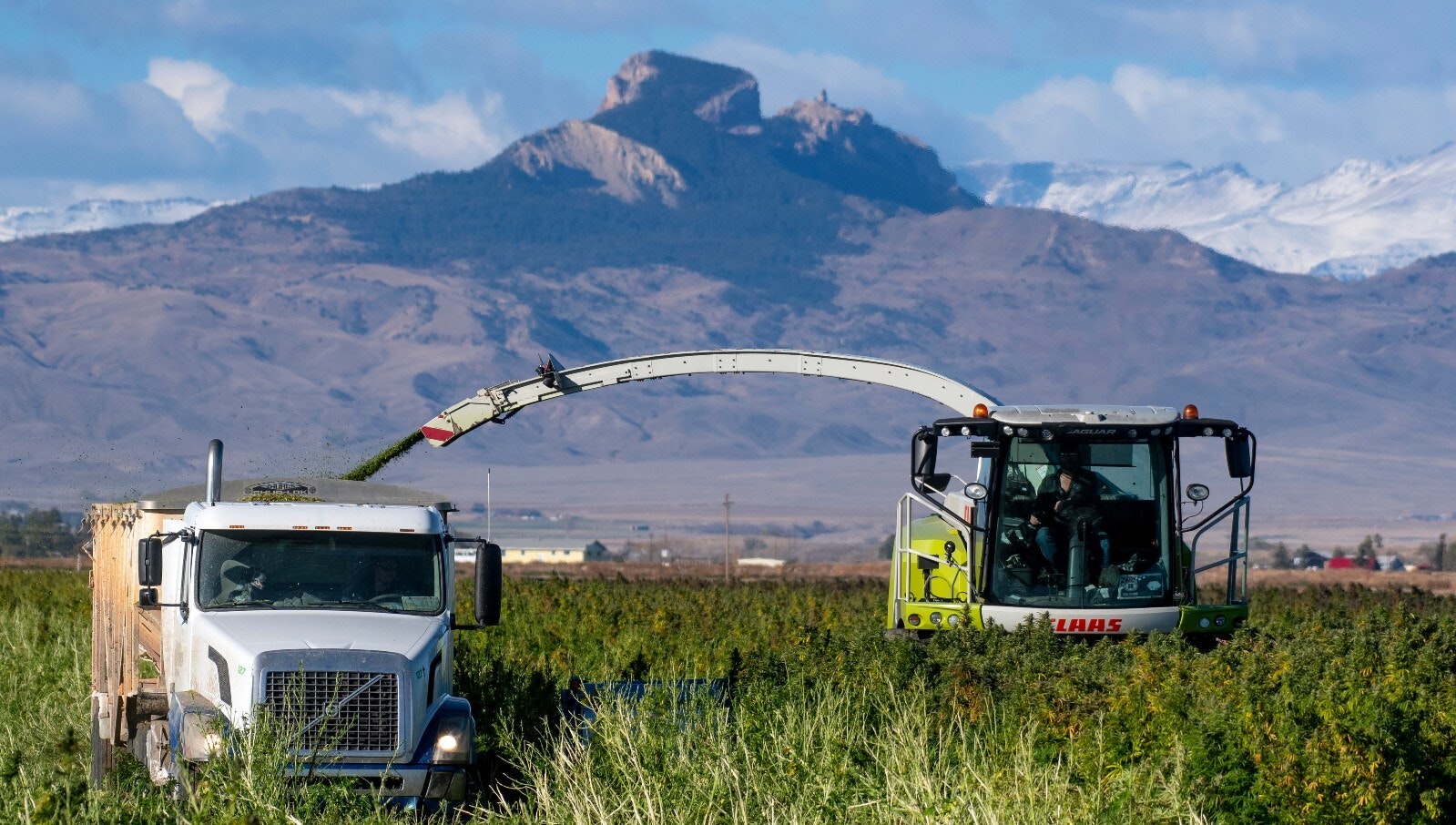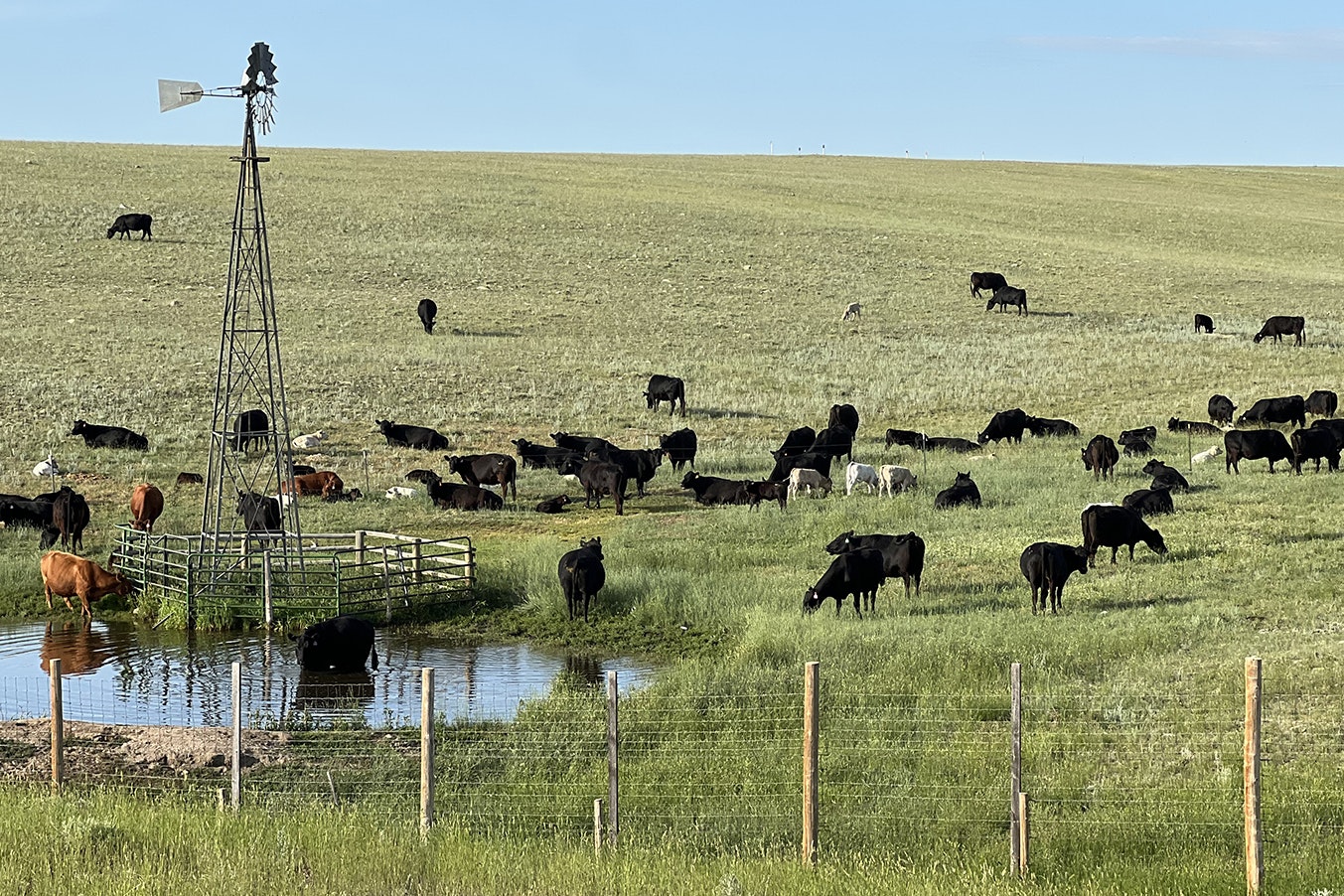Since the Wyoming Legislature cleared the way for hemp farming in the Cowboy State, it appears something may be harshing the fledgling industry’s buzz.
To grow hemp in Wyoming, a farmer needs a license from the Wyoming Department of Agriculture, and just 22 operations are licensed to grow hemp in the state this year. That’s down from 25 in 2021 and 28 in 2020.
The number of acres licensed for hemp was a little less than 314 this year compared to 789 in 2021. Official figures on how many licensees grew a hemp crop this year won’t be known until next year, but of the 25 operations licensed in 2021, only 12 actually planted hemp.
Weeding Out Amateurs
Justin Loeffler with GreenTree Ag LLC said the industry faces some challenges, but the decline in licenses doesn’t signal that the Wyoming hemp industry is failing.
“It’s going through its trial-and-error period, that’s for darn sure. What we’re seeing is the industry is finally starting to weed itself out,” Loeffler said.
Ron Rabou, owner of Rabou Farms, helped push the legislation that pushed forward the state’s hemp program. He grows hemp for grain used in foods, which he said is high in protein and nutritional value.
He said that a lot of farmers who got into hemp the first year didn’t manage their expectations well or do enough research to know how to be successful.
“I think when they see an opportunity, they say to themselves, ‘Oh, this is a way for me to make a quick dollar,’” Rabou said.
Rabou said that the industry is so far behind in development and discovery compared to other crops that it’s going to be years before it’s positioned to be a serious, competitive industry.
Shredded Weed
Loeffler said that hemp grown for CBD was a market that got saturated, and what the industry should be focused on is hemp grown for its fiber and grain.
“Large-scale CBD growing is gone. It just doesn’t pay, and the risk isn’t worth the reward,” Loeffler said.
David Northrup, who farms in Willwood south of Powell, rented out some of his land last year to a hemp operation.
He said the farmers struggled with weed management. Since they were avoiding any chemical herbicides, much of the weeding had to be done by hand. They laid plastic down, and getting the plastic back up off the soil was difficult.
“I would never do that again,” Northrup said.
Once the crop was harvested, the growers couldn’t find a buyer.
“There was such a glut on the market that nobody wanted it,” Northrup said.
The entire crop was shredded and put back into the ground.
In the first year of Wyoming’s program, some crops had to be destroyed when they exceeded the 0.3% limit on THC, the primary psychoactive ingredient in marijuana. No crops in 2021 busted the limit, and none tested this year so far were too high.
Legwork
Loeffler said it’s going to be hard to tap into markets until infrastructure is in place to support large-scale production.
He said hemp grown for fiber has huge potential. The problem is that a building material manufacturer or a textile company’s supply of raw material needs to come by the trainload. No one will switch to hemp as a fiber source when it’s being produced in small operations producing a truckload or two a year.
They also need to have better communication between hemp producers and industries, Loeffler said, so the proper processing facilities can be built.
“We need to start working with … construction companies, the lumber people and the plastic industry,” he said. “When we find out what their specifications and their needs are, we can start designing equipment that will meet their needs.”
Rabou said the decline in licenses is temporary. Farmers like himself and Loeffler, Rabou said, will continue to do the legwork, to improve the process and figure out how to make it scalable. Then, other players will start jumping on board.
Rabou said his farm operation has never had a problem finding a market for their hemp produce, but while they’re working out the challenges, they’re keeping the operation small-scale. Though small, they’re proceeding steadily.
Hemp is “very expensive to grow. We’re not just going to jump off the cliff and raise as much of it on every acre of land that we have. That just wouldn’t be smart,” Rabou said.





